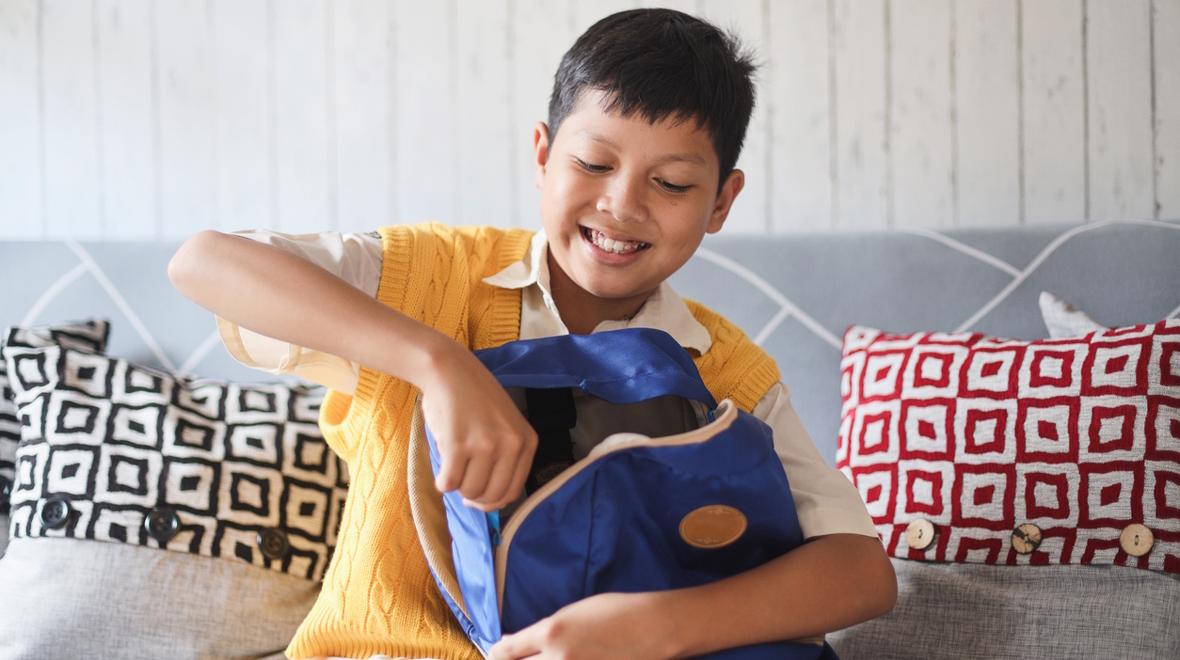Practical Back-to-School Tips From Local Experts

Photo:
iStock
Routines to counteract chaos: Sarina Behar Natkin, LICSW
Sarina Behar Natkin, LICSW, is a parent coach with two kids of her own. Trained as a therapist, she works with parents to identify the skills they want to teach their children and to determine whether what they do actually supports their goals. “So much is out of kids’ control in their lives,” she says. “Routines let them predict what will happen and gain a sense of control.” Here are Natkin’s top tips for creating back-to-school routines that will help kids (and their parents) thrive.
1. Set yourselves up for success
“One of our best strategies as parents is prevention. Setting things up is easier than fixing a problem,” says Natkin. So, don’t wait until kids are behind in school or sleep-deprived from late nights to start working on establishing healthy routines. Before school starts, plan the routines you will follow.
2. Work together
Even toddlers can be involved in setting up their own routines, and having a say in the process improves compliance. Furthermore, by helping them work through the steps of figuring out what needs to be done, you’re preparing them to manage their own time as they get older.
3. Make it a game
Whether you’re planning a bedtime routine or a routine for getting out the door in the morning, treat it like a puzzle. Have kids make a list of everything that needs to happen, then ask leading questions to help them put the steps in an order that works.
4. Look at the big picture
Don’t come up with a single, idealized routine. Instead, look at the whole week and recognize that every day is a little different. If your kid has a late soccer practice on Thursday, plan for a later, shorter bedtime. If Tuesday is the only day with no after-school activities, let kids know that’s the day to make a dent on homework for the week.
5. Give yourself wiggle room
Speaking of idealized routines, nothing in real life goes exactly to plan. Give yourself wiggle room in your routines, especially at the beginning, so lost minutes here and there don’t cascade into chaos. Building 10 extra minutes into the morning routine can make the difference between a mad dash to beat the late bell and a calm start to the day.
6. Give your routine time to work
“Starting a new school year is like starting a new job. You’ve got a new desk, a new schedule, you’re surrounded by a different group of people. It’s exhausting,” says Natkin. Don’t panic if everything doesn’t run like clockwork right away. Give yourself and your kids a little bit of time to adjust.
7. Think about how you communicate
“It’s easy for kids to ignore orders barked from another room,” says Natkin. When you stay calm, make eye contact and ask questions instead of issuing commands, routines go more smoothly. (It’s easier to do those things if you’ve followed the tip to build in an extra 10 minutes.) “But don’t talk nonstop — nagging causes stress and resistance.”
8. Be consistent and flexible
Have faith in the process. If you stick with the routine, kids will start to get it after a few repetitions. Even well-established routines will inevitably slide when holidays, houseguests or a round of colds interfere. When that happens, adjust as necessary in the moment. But as soon as the issue is resolved, recommit to the routine and start again. Involve kids by asking, “Can you remind me how we decided to do this?”
9. Be willing to change
Routines don’t work unless they are, well, routine. If the routine slides more often than it sticks, it might be time to try something different. “If it’s not working consistently, stop and see why,” suggests Natkin. Maybe you need to break things into smaller steps or build in more time. Reflect on what’s working and what isn’t working, but don’t endlessly rehash or start judging. Just figure out a new plan.
10. Don’t engage in power struggles
“Make clear boundaries in a kind way and stick to them,” says Natkin. “Negative attention feeds the beast.” Once kids learn that you mean what you say, they’ll pick up the new routine pretty quickly. Saying, “I’ll be waiting on the porch while you get your shoes on” might result in your being late once or twice (it goes back to building in wiggle room). But if you say, “Fine, I’ll put your shoes on this time,” then putting your kid’s shoes on for them will become part of the morning routine.
Up next: Sound sleep: Malia Jacobson











